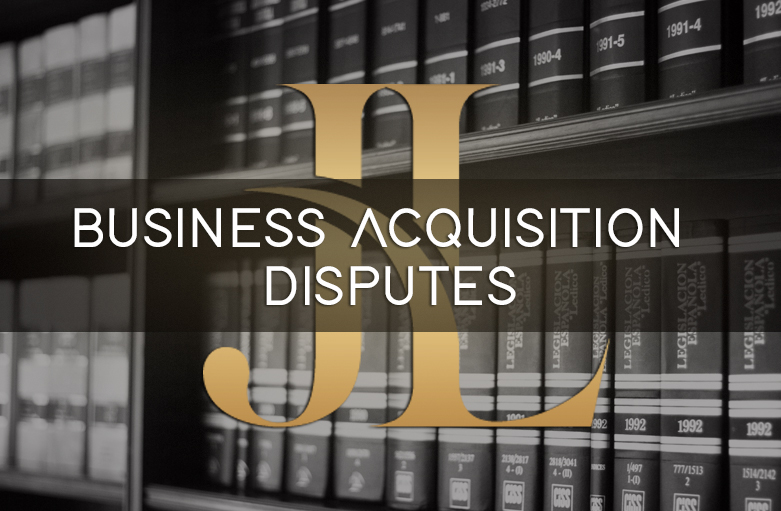
Business Acquisition Disputes: Resolving Conflicts in Mergers and Acquisitions
In the dynamic world of business, mergers and acquisitions (M&A) play a crucial role in shaping industries and driving growth. However, these complex transactions often give rise to disputes between the parties involved. Business acquisition disputes can emerge due to various reasons, including valuation disagreements, breach of warranties, post-closing disputes, and regulatory issues. This article aims to explore the common types of acquisition disputes, their causes, and potential solutions to resolve conflicts effectively.
Valuation Disputes
Valuation disputes often occur when the buyer and seller have conflicting opinions on the worth of the target company. Differences in assessing the target’s assets, liabilities, and potential future earnings can lead to disagreement. Additionally, the use of different valuation methodologies, such as discounted cash flow (DCF) analysis or market comparables, can further complicate matters. Resolving valuation disputes may involve seeking expert opinions, conducting independent valuations, or negotiating a compromise.
Breach of Warranties
Breach of warranties is another common issue in business acquisition disputes. Warranties are representations made by the seller about the target company’s financial condition, operations, or legal compliance. If the buyer discovers any misrepresentation or breach of warranties after the deal is closed, it can lead to disputes. To mitigate such conflicts, buyers often negotiate indemnification clauses and escrow accounts to protect themselves in case of breaches.
Post-Closing Disputes
Post-closing disputes can arise when the buyer and seller disagree on the fulfillment of certain obligations or the interpretation of contractual terms after the acquisition. These disputes may involve matters such as earn-out provisions, working capital adjustments, or non-compete agreements. Clear and well-defined agreements, as well as effective communication between the parties, are crucial in preventing and resolving post-closing disputes.
Regulatory Issues
Regulatory issues pose significant challenges in business acquisition transactions. Companies operating in regulated industries, such as finance or healthcare, must comply with specific laws and obtain necessary approvals. Failure to comply or secure regulatory clearances can lead to disputes or even the termination of the deal. Proper due diligence, compliance assessments, and engaging with regulatory authorities can help prevent and address such disputes.
Mitigation Strategies
To mitigate the risk of acquisition disputes, proactive measures should be taken during the deal negotiation and due diligence stages. Thoroughly evaluating the target company’s financials, operations, and legal compliance can minimize surprises and potential disputes in the future. Engaging experienced legal and financial advisors can provide valuable insights and guidance throughout the acquisition process.

Mediation and Arbitration
When disputes arise, mediation and arbitration can offer alternative dispute resolution mechanisms. Mediation involves a neutral third party facilitating negotiations between the parties, aiming to reach a mutually agreeable resolution. Arbitration, on the other hand, involves a binding decision by an arbitrator or panel of arbitrators based on the arguments presented by the parties. Both approaches offer faster and less formal alternatives to litigation, saving time and costs for all involved.
Conclusion
Business acquisition disputes are an inherent risk in the world of mergers and acquisitions. However, with careful planning, effective communication, and proactive measures, these disputes can be minimized and resolved efficiently. Valuation disputes, breach of warranties, post-closing conflicts, and regulatory issues are common areas where disputes may arise. By employing mitigation strategies and utilizing alternative dispute resolution methods like mediation and arbitration, parties can work towards finding fair and satisfactory resolutions to their conflicts.
FAQs
Lorem ipsum dolor sit amet, consectetuer adipiscing elit, sed diam nonummy nibh euismod tincidunt ut laoreet dolore magna aliquam erat volutpat.
Companies can prevent business acquisition disputes by conducting thorough due diligence, engaging experienced advisors, and ensuring clear and well-defined agreements.
Mediation facilitates negotiations between parties, aiming to reach a mutually agreeable resolution without the need for formal litigation.
Arbitration involves a binding decision by an arbitrator or panel of arbitrators, whereas mediation aims to facilitate negotiation and reach a voluntary agreement.
Effective mitigation strategies include thorough due diligence, engaging experts, clear agreements, and proactive communication between the parties.
Contact us to speak with one of our knowledgeable attorneys and gain a competitive advantage in resolving a business acquisition dispute.
